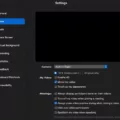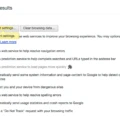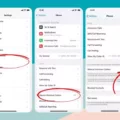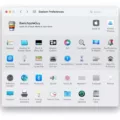Google Chrome is one of the most popular web browsers in the world. It is known for its speed, reliability, and user-friendly interface. However, like any other software, it is not perfect, and users may encounter issues with it from time to time. One of the most common issues that users face is when Google Chrome becomes unresponsive. This can be frustrating, especially if you are in the middle of an important task or browsing session. In this article, we will discuss some of the reasons why Google Chrome may become unresponsive and how to fix the issue.
One of the main reasons why Google Chrome may become unresponsive is due to an outdated browser version. If you are using an older version of the browser, it may lack some of the latest patches and updates, which can cause it to become unstable. To fix this, you should update your browser to the latest version. You can do this by clicking on the tree dots in the top right corner of your browser window, then selecting “Help” and “About Google Chrome.” This will automatically check for updates and install them if they are available.
Another reason why Google Chrome may become unresponsive is due to an overloaded system. If you have too many tabs open or too many extensions running in the background, it can cause the browser to slow down or become unresponsive. To fix this, you should close any unnecessary tabs and disable any extensions that you are not using. You can do this by clicking on the three dots in the top right corner of your browser window, then selecting “More Tools” and “Extensions.”
Malware can also cause Google Chrome to become unresponsive. Malware is malicious software that can infect your computer and cause various issues, including browser crashes. To fix this, you should run a malware scan on your computer using an antivirus program. This will help to detect and remove any malware that may be causing the issue.
In some cases, network issues may be the cause of Google Chrome becoming unresponsive. If you are experiencing slow internet speeds or connectivity issues, it can cause the browser to become unresponsive. To fix this, you should check your internet connection and troubleshoot any issues that may be causing the problem.
Google Chrome is a reliable and user-friendly web browser, but it is not immune to issues such as becoming unresponsive. The reasons for this issue can vary, but some of the most common ones include an outdated browser version, an overloaded system, malware, and network issues. To fix the issue, you should update your browser, close unnecessary tabs and extensions, run a malware scan, and troubleshoot any network issues. By following these steps, you can ensure that your browsing experience with Google Chrome is smooth and hassle-free.
Troubleshooting Google Chrome Not Responding
If you are experiencing the issue of Google Chrome not responding, there are several things you can do to fix it. Here are some steps you can take:
1. Close other tabs, extensions, and apps. Sometimes, having too many tabs or extensions open can cause Chrome to become unresponsive. Close any unnecessary tabs, extensions, and apps to see if that helps.
2. Restart Chrome. Close Chrome completely and then reopen it to see if that solves the problem.
3. Restart your computer. If restarting Chrome doesn’t work, try restarting your computer to see if that fixes the issue.
4. Check for malware. Malware can cause Chrome to stop responding. Use an antivirus program to scan your computer for any malware and remove it.
5. Open the page in another browser. If the issue is only happening on a specific webpage, try opening it in another browser to see if the problem persists.
6. Fix network issues and report website problems. Check your internet connection and report any website problems to the website’s administrator.
7. Fix problem apps (Windows computers only). If you are using a Windows computer, you can use the Task Manager to identify and close any problem apps that may be causing Chrome to become unresponsive.
8. Check to see if Chrome is already open. Sometimes, Chrome can appear unresponsive if it is already open in the background. Check your taskbar or system tray to see if Chrome is already open.
By following these steps, you should be able to fix the issue of Google Chrome not responding.
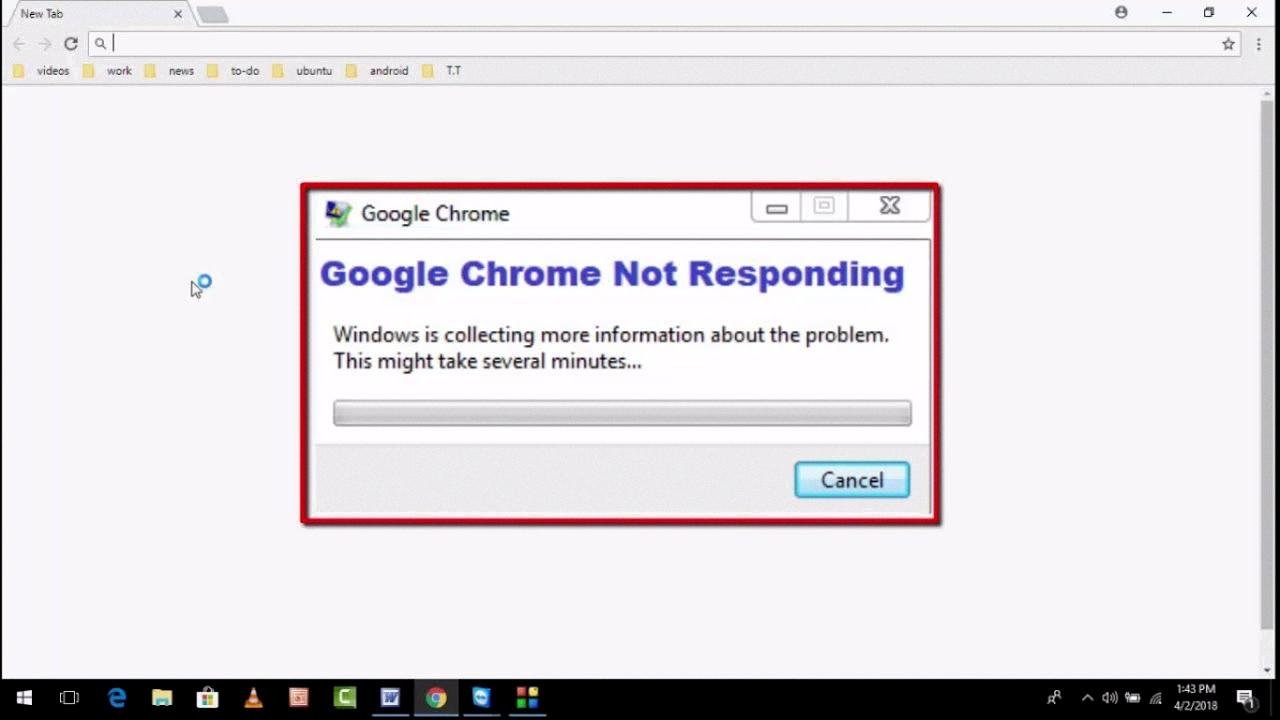
The Causes of Google Chrome’s Unresponsiveness
Google Chrome is a widely used web browser that offers a range of features and functionalities. However, some users may experience issues with the browser becoming unresponsive, which can be frustrating and impact their browsing experience. There can be several reasons for this behavior, including:
1. Outdated browser version: One of the most common reasons for Google Chrome becoming unresponsive is using an outdated version of the browser. When you use an outdated browser, it may lack some of the latest patches and updates that are essential for its smooth functioning, leading to unresponsiveness.
2. Hardware limitations: If your computer has limited hardware resources such as RAM, processor speed, or storage space, it may cause Google Chrome to become unresponsive. This is because the browser requires a considerable amount of system resources to run smoothly, and insufficient resources can lead to unresponsiveness.
3. Conflicting extensions: Google Chrome supports a wide range of extensions that can enhance its functionality. However, some extensions may conflict with each other or with the browser itself, leading to unresponsiveness.
4. Malware or viruses: Malware or viruses on your computer can also cause Google Chrome to become unresponsive. These malicious programs can interfere with the browser’s functioning and cause it to stop responding.
Google Chrome can become unresponsive due to several factors such as outdated browser versions, hardware limitations, conflicting extensions, or malware/viruses. By identifying and addressing these issues, you can improve the browser’s performance and ensure a smoother browsing experience.
Browser Not Responding: Causes and Solutions
There could be several reasons why your browser keeps saying “not responding”. One possible reason could be that your internet connection is weak or unstable, which can cause websites to take longer to load or fail to load altogether. Another reason could be that your browser has too many tabs open or is running too many extensions, which can cause it to become overloaded and unresponsive. Additionally, outdated browser software or conflicts with other programs on your device could also be contributing to the issue. To resolve this problem, you can try restarting your browser, clearing your cache and cookies, disabling any unnecessary extensions, or updating your browser to the latest version. If the problem persists, you may want to consult with a technical expert or seek further assistance.
Conclusion
Google Chrome not responding can be a frustrating experience, but there are several steps you can take to fix the issue. First, make sure your browser is up to date and that you have no malware on your computer. It’s also important to close other tabs, extensions, and apps, as well as to restart Chrome or your computer if necessary. Additionally, you can try opening the page in another browser or fixing problem apps if you are using a Windows computer. By following these tips, you should be able to get your browser working smoothly again and avoid further frustration.


